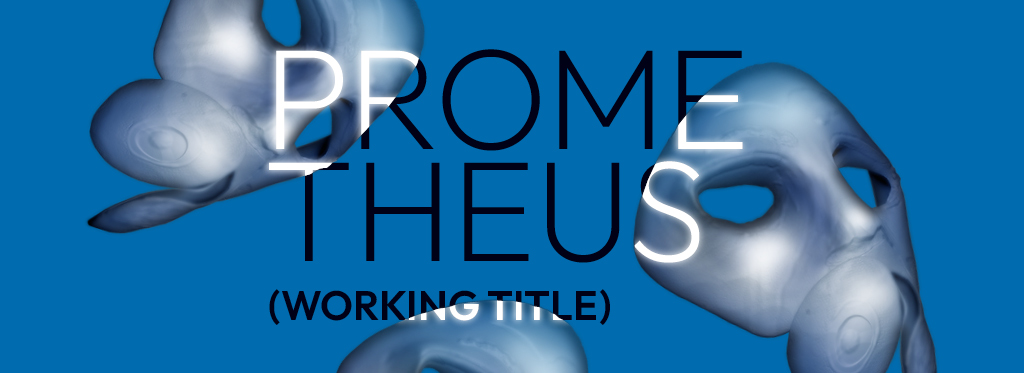World Premiere
Event Details
January 26, 27, 28, 8PM
Hepburn Teaching Theater, Goodhart Hall
Bryn Mawr College
150 N Merion Ave, Bryn Mawr, PA 19010
Tickets:
Free for Tri-Co students, faculty, and staff
$20 General admission
$10 Students (not from the Tri-College Consortium)
Limited tickets available! Walk-ins not guaranteed entry
Is artificial intelligence a “gift from the gods” to advance human civilization — or a fraught technology with as-yet unknown implications?
Prometheus
(Working Title)
“What shall I do?”
This is the question at the heart of Greek tragedy. When there are no good options, when every course of action comes with unbearable costs, how do you choose?
The question anchors a new lecture-discussion-performance by Annie Dorsen. Across all of her work, Dorsen investigates how advancing technology is changing us. This time, she examines the newly emerging tools of “generative artificial intelligence” through the lens of ancient mythology.
Prometheus stole the gods’ fire to give to humans — sparking sudden and dramatic advances in human civilization that also led to hardship and evils. His story is told in the 2500-year-old Prometheia trilogy, of which only fragments remain of the third play. This performance uses AI to fill in the missing story, with Prometheia as source material for dialogues and songs created in real-time through algorithmic prompts. On stage, a chorus of AI-generated Greek masks “performs,” and Dorsen herself joins with storytelling and reflections on mythology and technology.
Each performance is unique, as the algorithms produce new content each night.
We’re asked to consider: What does it mean for a machine to create theater? Is artificial intelligence a “gift from the gods” to advance human civilization — or a fraught technology with as-yet unknown social and environmental implications? Where do we end up when AI chooses our course of action?
FAQ
What is generative artificial intelligence?
Generative AI refers to machine learning algorithms that use existing content (text, image, audio, video, code, etc.) to create realistic new content. As the AI tool is trained on more source material, it becomes increasingly “skilled,” making it difficult to distinguish AI content from human-created content. The Lensa app, recently popular on social media to create “artistic” selfies, is an example of image-based generative AI. In this performance, all of the AI components were made using existing off-the-shelf tools available for anyone.
What is the Prometheia trilogy?
Prometheus is the Titan god of fire, best known for stealing the gods’ fire to advance human civilization. The original Prometheia trilogy from the 5th century BC is attributed to Aeschylus, and includes Prometheus Bound along with fragments of Prometheus Unbound and Prometheus Fire-Bringer. In 1820, Percy Bysshe Shelley published an adaptation of the second play, Prometheus Unbound. Dorsen began this work by imagining using AI to fill in the missing story of the lost third play, Prometheus Fire-Bringer. The third play is thought to be about Prometheus’ surrender to Zeus, and, metaphorically, the taming of technology by state power.
What can I expect from the performance?
The piece is a hybrid performance/lecture/discussion. Six Greek masks will be set up on stage — one representing Prometheus and five as the Greek chorus — and they will be animated and available for view as you enter. Approximately half of the performance features real-time AI-generated content performed by the masks, and the other half features Annie Dorsen sharing background and concepts related to Greek mythology and advancing technologies. The performance will last about an hour.
